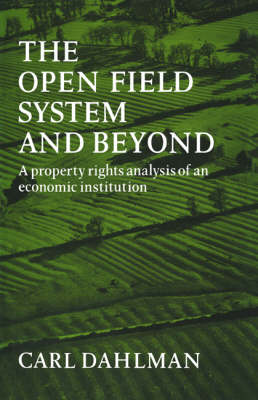In this book, Professor Dahlman applies modern economic methodology to an old historical problem. He demonstrates how the quaint institutions of the ancient English open field system of agriculture can be understood as an intelligent and rational adaptation to a particular problem of production and to certain historical circumstances. He argues that the two major characteristics of this type of agriculture - scattered strips owned by individual peasants and extensive areas of common land - both fulfilled vital economic functions. This overturns the traditional view of the open field system as inefficient and rigidly bound by tradition, and throws light on the behaviour of medeival peasants. Professor Dahlman also offers some generalisations about the economic theory of institutions and institutional change, refuting the idea that an economic analysis of institutions must necessarily be deterministic. As a challenge to some of the fundamental criticisms of the application of economic theory to historical problems, the book will be of great interest to agrarian historians and to economic historians generally, as well as to specialists in the medieval period.
- ISBN13 9780521072502
- Publish Date 4 September 2008 (first published 15 May 1980)
- Publish Status Active
- Publish Country GB
- Imprint Cambridge University Press
- Format Paperback (US Trade)
- Pages 244
- Language English
